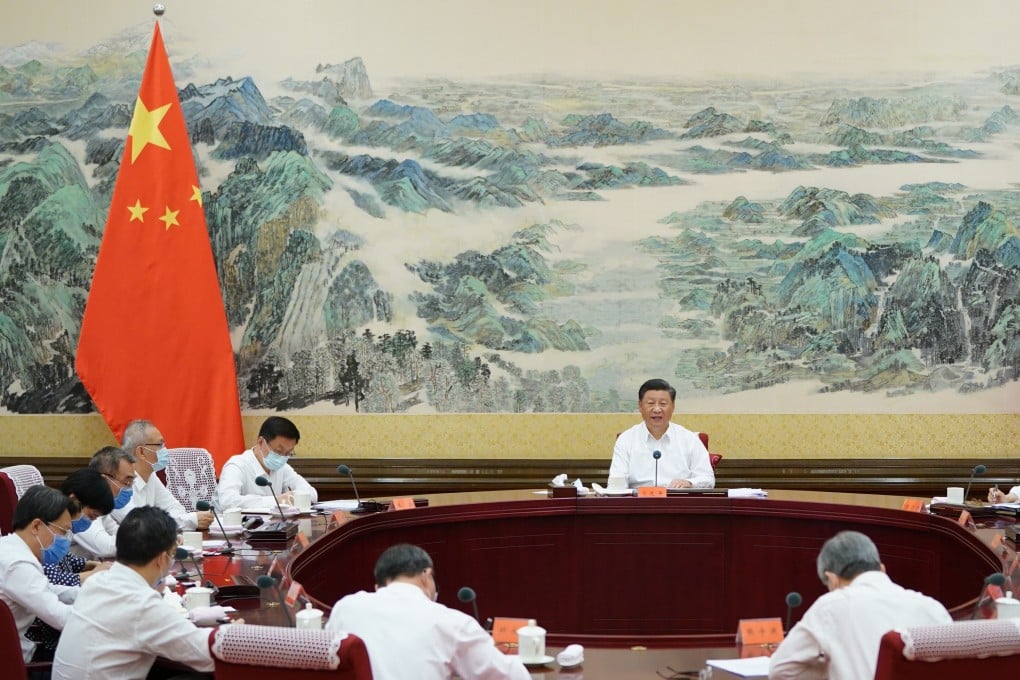China’s economic future is being influenced by nine economists, but what did they tell Xi Jinping this week?
- Chinese President Xi Jinping met with nine prominent economists this week to help with the development of the 14th five-year plan for 2021-25 which is due next year
- Each of the economists has advocated specific policies that could shed light on Beijing’s policy priorities in the years ahead

President Xi Jinping this week assembled a group of nine economists as part of the process for the development of Beijing’s strategy for the next five years, with a new approach to urbanisation, addressing the rapidly ageing of the population and moves to catch up to the west in technological areas seen to be high on the list of economic and social priorities.
The 14th five-year plan, which will cover 2021-25, will not be published until next year.
Justin Lin Yifu, a former senior vice-president at the World Bank and now a professor at Peking University, is a long-term advocate of the state taking an active role in industrial planning to help developing countries quickly catch up with advanced economies.
Lin, a former Taiwanese military officer who defected to the mainland in 1979, said in a speech this month that China can maintain an annual growth rate of 5 per cent to 6 per cent in the coming decade as long as the country makes good use of its development potential.
This would, according to Lin, allow China to bypass the United States as the world’s largest economy by 2030.